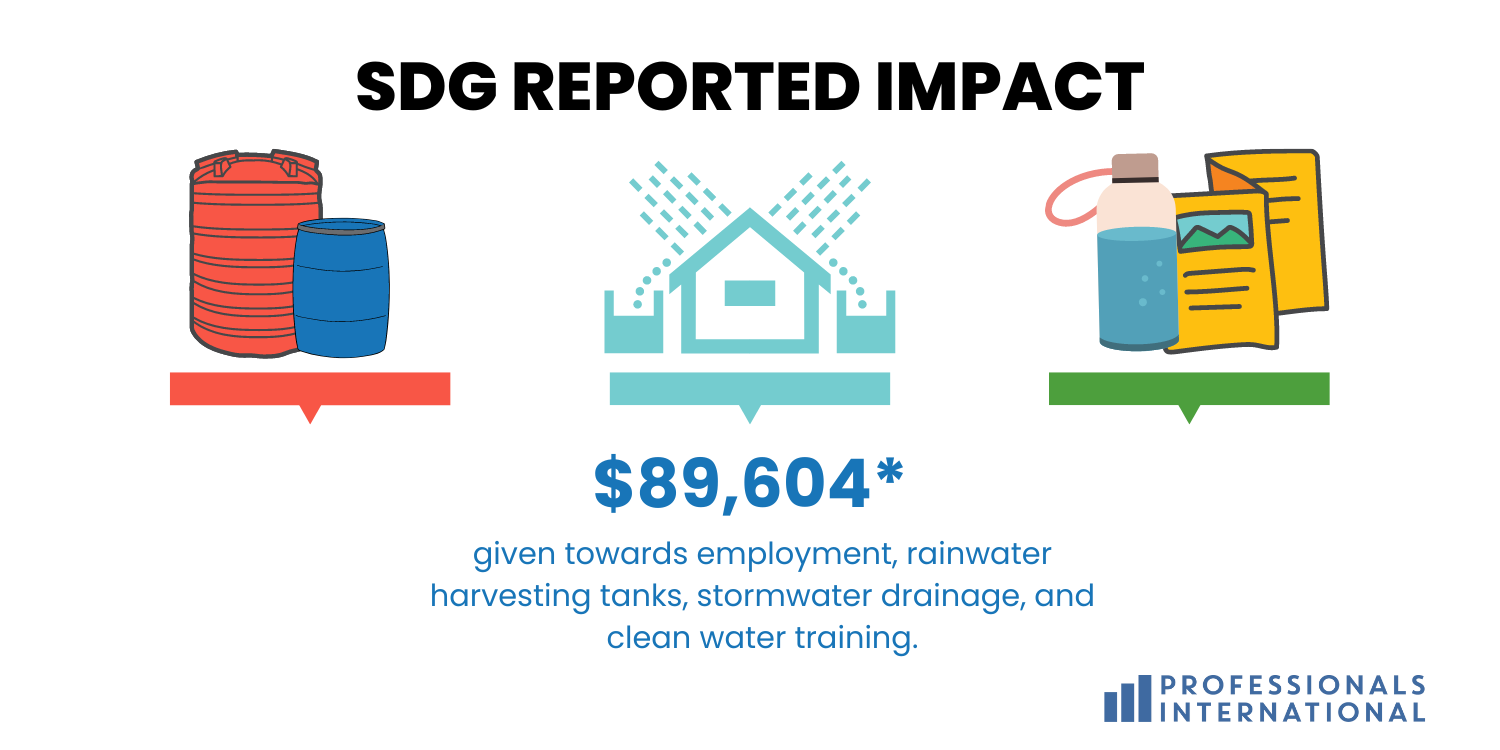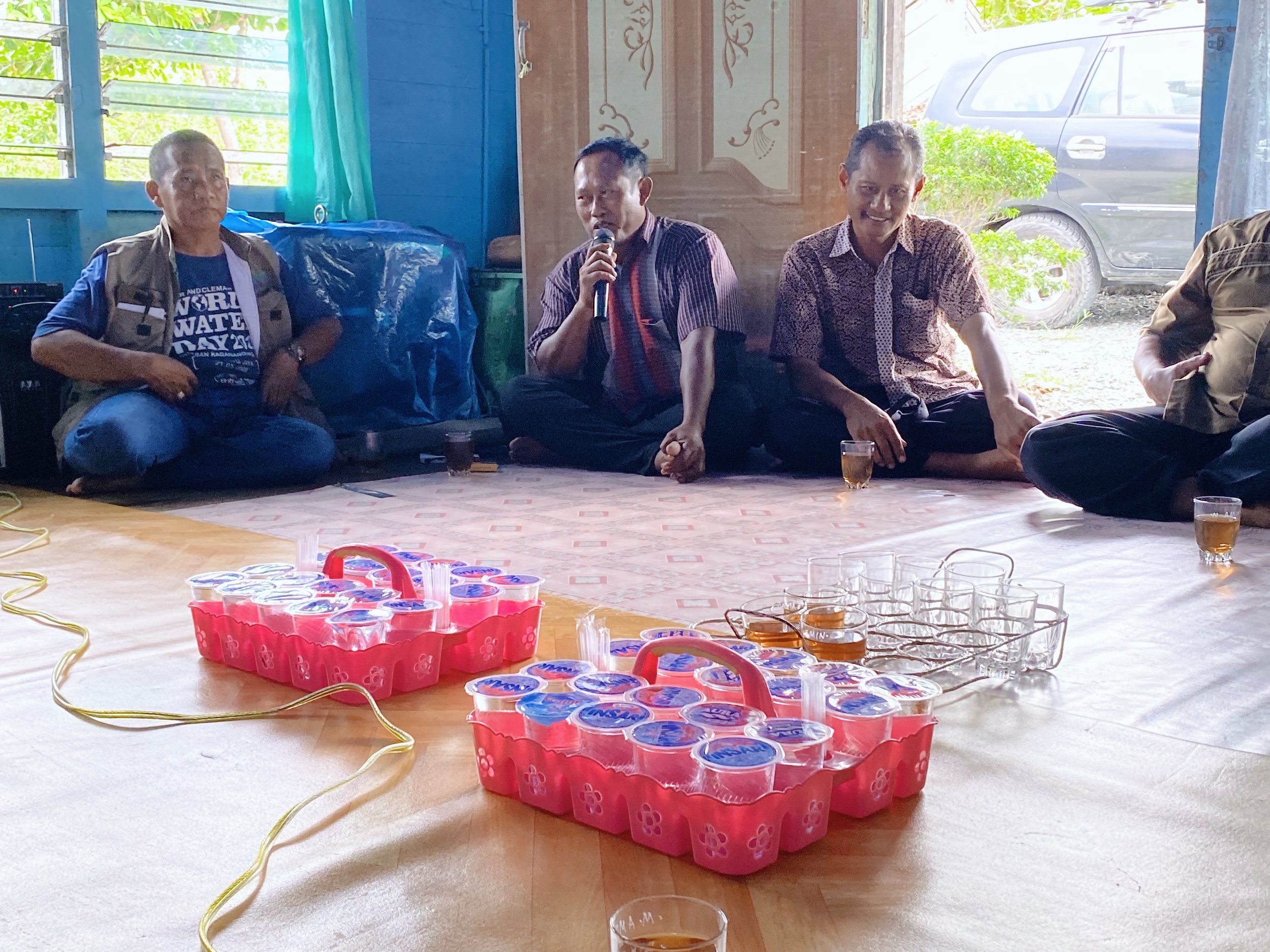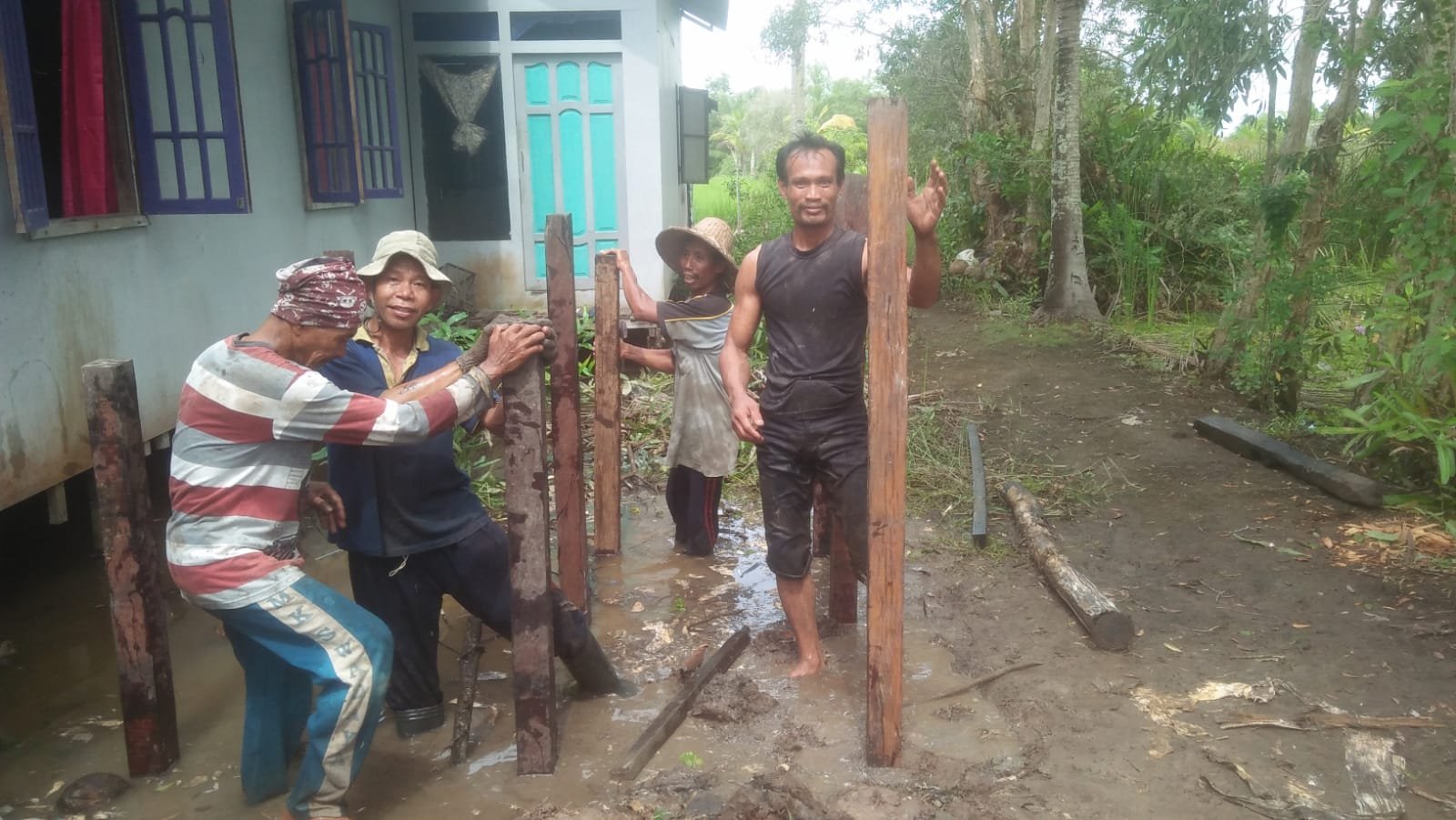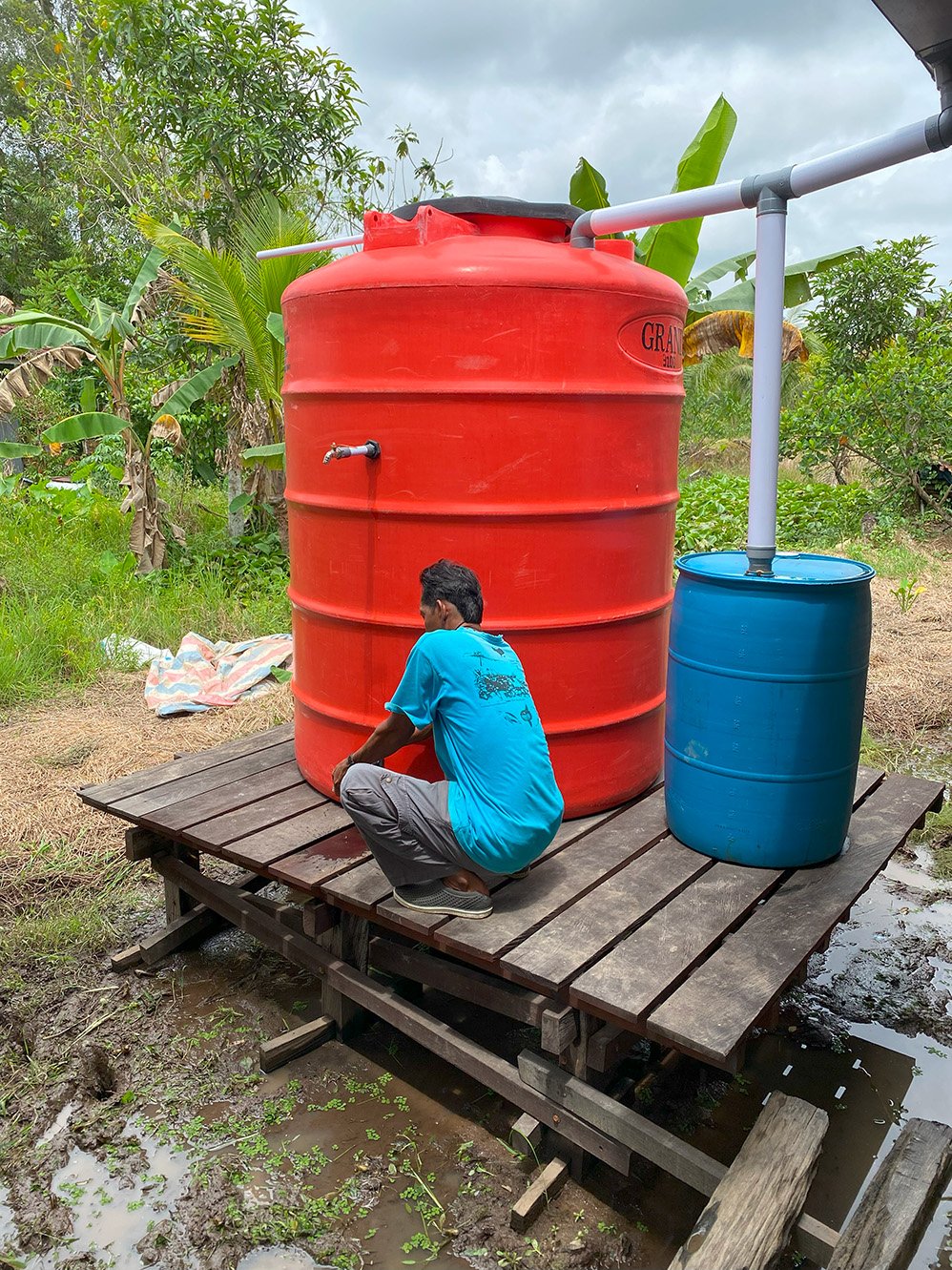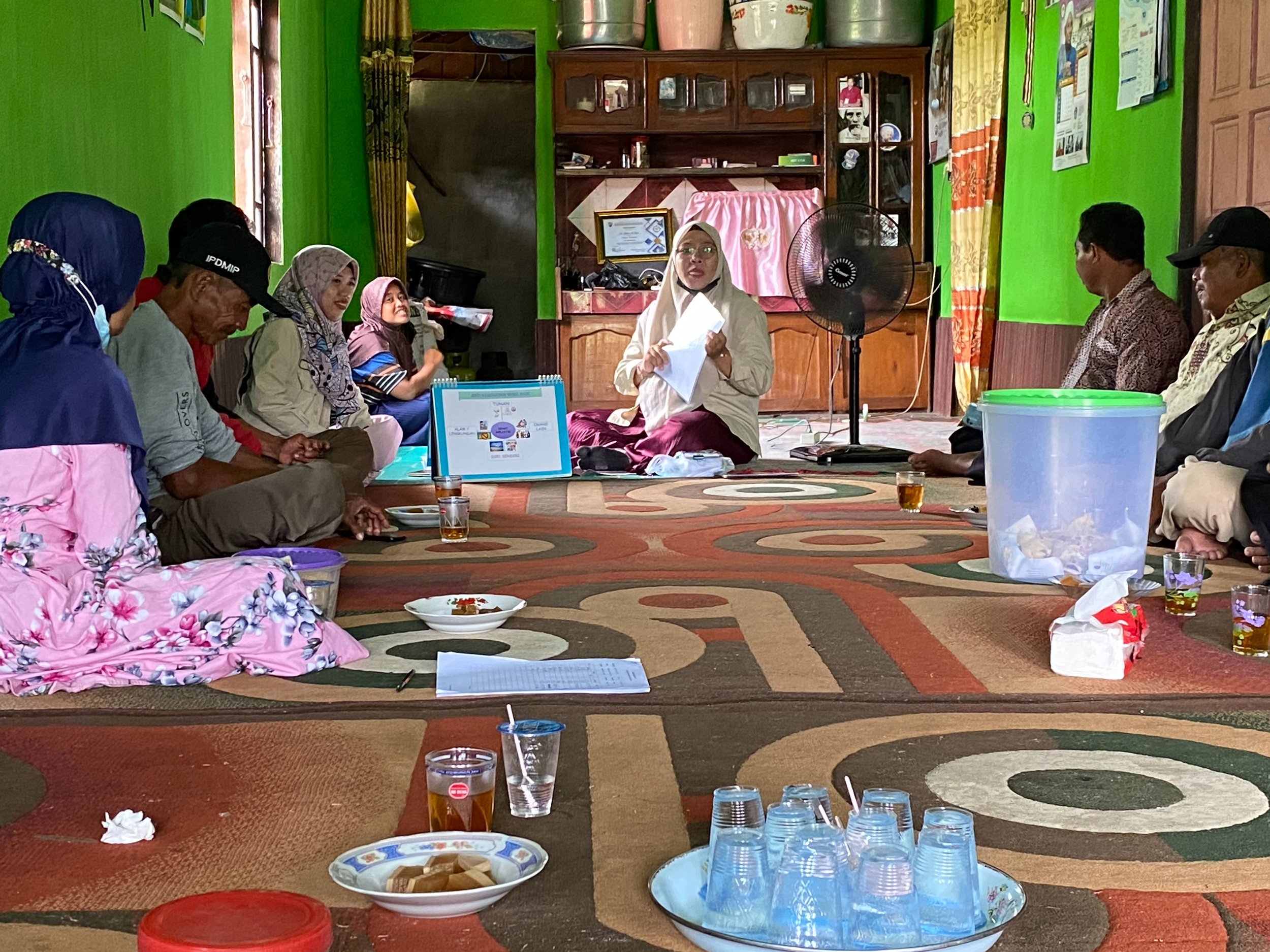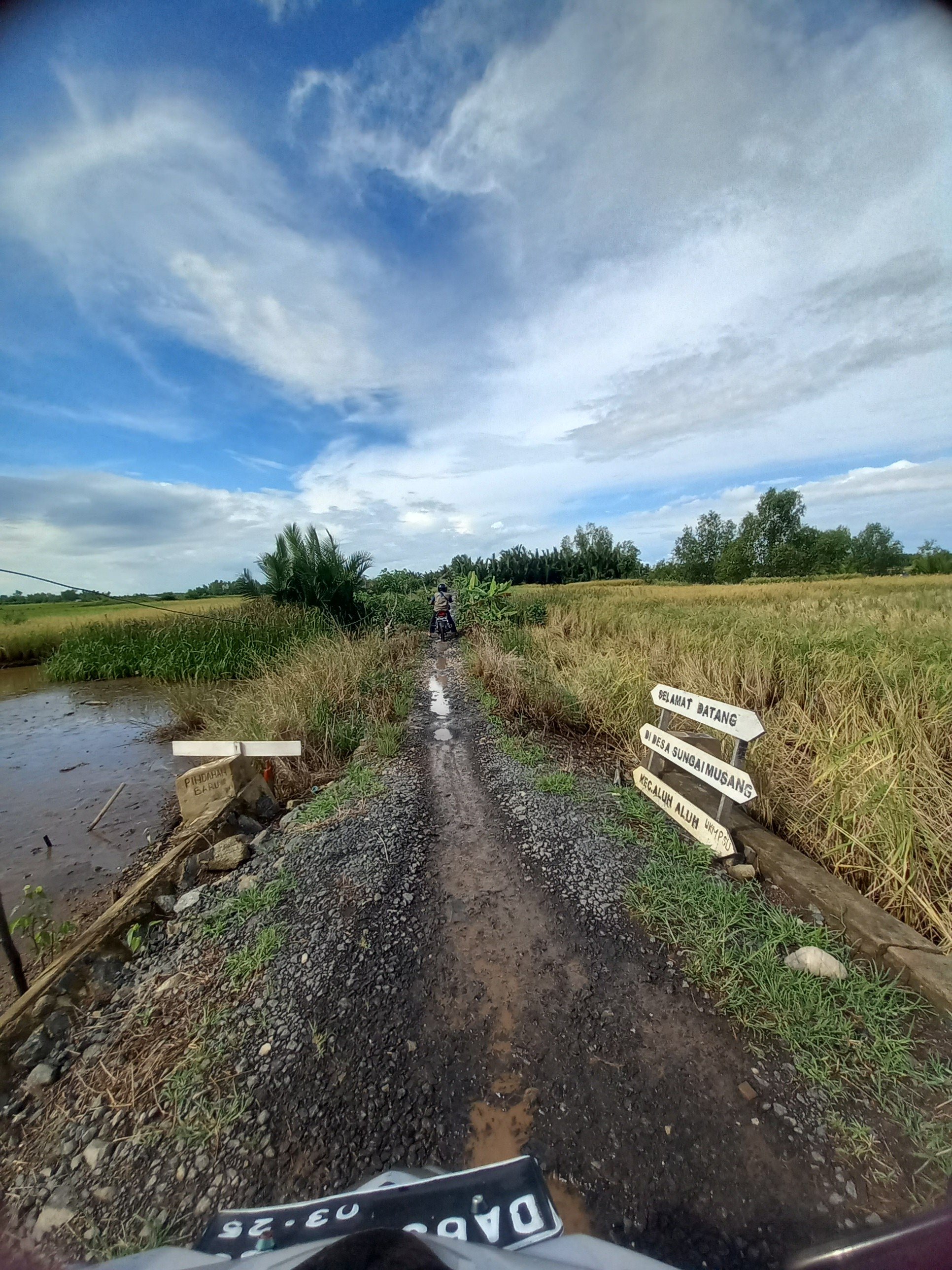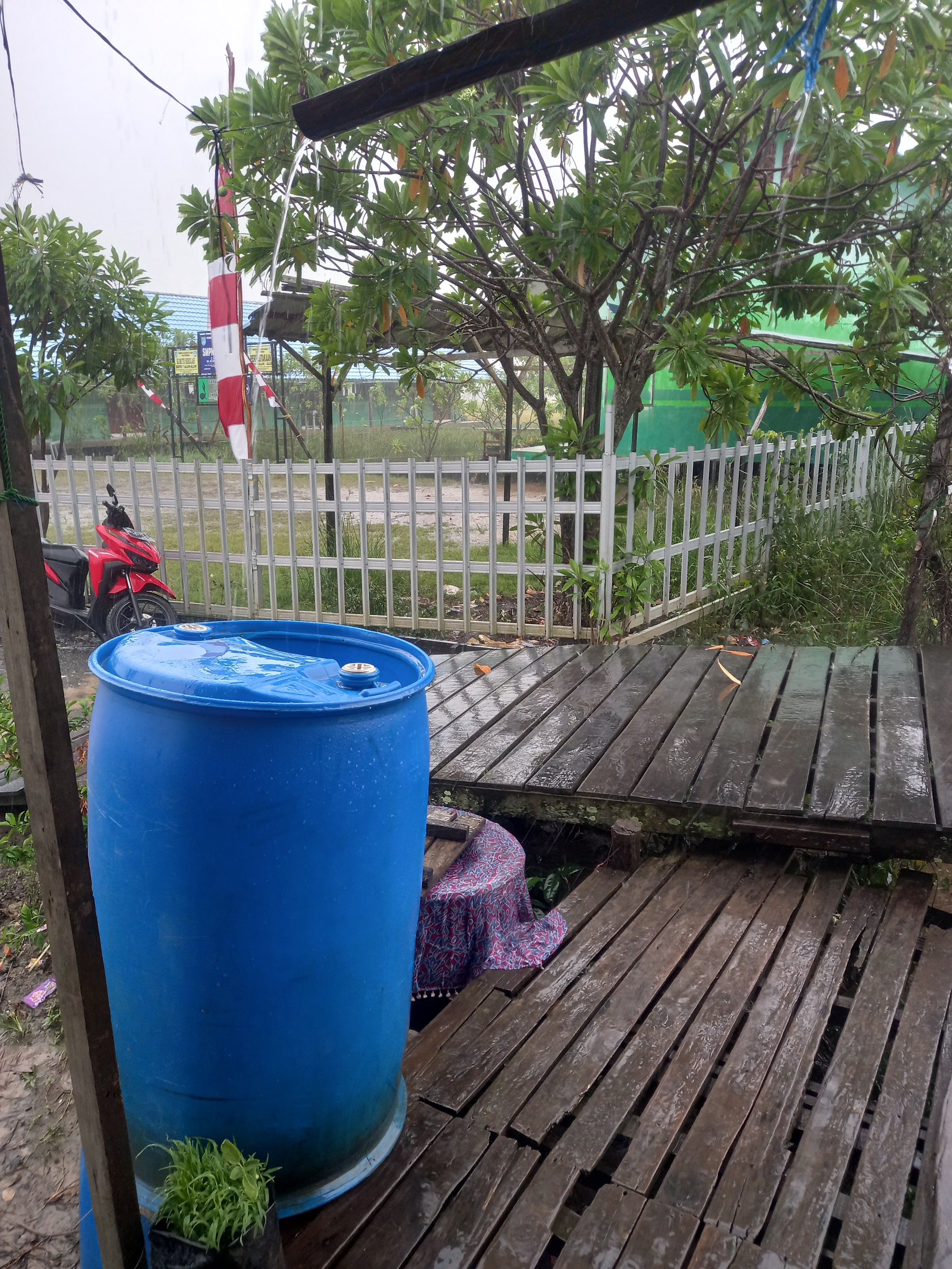Water & Sanitation
Significant Challenge(s)
This project partnered with Professionals International in 2017 before PRINT adopted quarterly metric reporting. Metrics, reporting, and stories began in 2019. The financial impact represents 2017-2023.
This project is situated in a province of Indonesia with a population of approximately 3.9 million. It is geographically isolated and is famous for its swamps and peat bogs created from the logging of the Borneo forests in the last 50+ years. It is also known for its seasonal flooding that causes increased damage to roads and the spread of polluted water. It is a difficult environment and is known for being a challenging place to live, even by other Indonesians.
The real concern was that “7 out of 10 Indonesian households consume drinking water contaminated with E.coli” (WHO). This was because “nearly 25 million people in Indonesia don’t use toilets…and water quality is poor regardless of socio-economic conditions. A 2017 survey of drinking water in Yogyakarta, a well-off urban centre in Java, found that 89% of water sources and 67% of household drinking water were contaminated by fecal bacteria. Moreover, only 7% of wastewater in Indonesia was treated.” (UNICEF).
The situation of the urban poor required urgent attention. In urban slum areas, inadequate sanitation, poor hygiene practices, overcrowding and contaminated water converged to create unhealthy conditions. The associated diseases include dysentery, cholera and other diarrheal diseases, typhoid, hepatitis, typhus, leptospirosis, malaria, dengue, scabies, chronic respiratory diseases and intestinal parasitic infections. Further reaching problems existed in the rural sectors. While 54% of Indonesians have access to improved sanitation, this area’s access to actual effective sanitation was essentially <1%.
The country already struggled to even identify current baseline infrastructural issues with water, sanitation, roads, education, and economic needs. And due to the COVID pandemic, much of government support for these issues were essentially eliminated to turn attention toward the spread of that virus.
Satisfying Solution
A team of engineers have targeted the southern area of West Borneo, Indonesia. Their plan is to create comprehensive solutions to the life threatening challenges experienced daily by the local people. Through innovation and partnership, void of discrimination, they will help forge new concepts in a culturally appropriate manner with cost effective implementation.
They support and assist local development initiatives by working in partnership with the local authorities and nonprofits to help plan, design and build necessary infrastructure such as access to drinking water (not just clean water), provide wastewater treatment solutions, and develop road networks. They also work to build the knowledge of local engineers.
Business Activities Geared Towards Providing Economic Growth and Infrastructure That Provides Access to Clean Water.
Target: Promote universal and equitable access to safe and affordable drinking water for all (Adapted from Target 6.1)
Target: Support and strengthen the participation of local communities in improving water and sanitation management (Adapted from target 6.b)
Target: Promote full and productive employment and decent work for all women and men, including for young people and persons with disabilities, and equal pay for work of equal value. (Adapted from Target 8.5)
Target: Develop quality, reliable, sustainable and resilient infrastructure to support economic development and human well-being, with a focus on affordable and equitable access for all (adapted from target 9.1)
“Measured by” Outcomes
Jan 2019 - April 2023
Amount of Grant Given
“What Does Your Donation Go towards?”
Stories of Substantial Impact
*This project partnered with Professionals International in 2017 before PRINT adopted quarterly metric reporting. Metrics, reporting, and stories began in 2019. The financial impact represents 2017-2023.
By the end of 2019, they had just landed another large drainage contract to finish the year. They were also on the verge of negotiating a partnership with the state of South Kalimantan, Indonesia and IPWEAQ (Institute of Public Works Engineers Queensland, Australia). They were partnering with one of the world’s best engineering software companies (12d) to help provide new tools for best practices in South Kalimantan.
But much of that changed in 2020 with the COVID pandemic. They maintained some of their traditional engineering consultations with roads, drainage, water, and sewer until the government essentially moved all efforts towards COVID relief. As COVID surged, they were assisting with their city's COVID taskforce, meeting nearly every day during their first several months. They helped create, translate, and distribute COVID educational materials along with hundreds of food packages to the poorest neighborhoods in the community.
Their city had hundreds of thousands living hand to mouth each day so the need and challenge was immense. Their business turned from income generating to volunteerism. Yet, their impact and connection with the community over the previous 5 years became evident during these times of meeting significant challenges.
Things became worse in 2021 when South Kailmantan experienced a once in a generation flood event. The engineering group met with local and state engineering officials to engage in discussions around the flooding issues and formulate future mitigations for stormwater runoffs with proper infrastructure and solutions. This flooding washed out roads that were key in getting trucks which carried fresh clean water to remote villages. Later, as you’ll see, they helped solve part of this issue with rainwater harvesting tanks.
They continued helping with immediate flood relief through community development projects run by a non-profit partner along with continuing the COVID relief efforts which included a relief donation center. It was a place to accept and distribute much needed relief items, including clothes, food, and sleeping mats. Through this donation center, they were able to provide aid to 3 villages.
By the end of 2021, they took advantage of the opportunity to construct 10 new rainwater harvesting tanks to provide year-round water to 10 families. These rainwater tanks could provide clean drinking water to an additional 50 families during the rainy season. They also taught 20 men in the community how to build them so they could multiply their efforts. These rainwater harvesting systems became a great focus in 2022 with 15 rainwater harvesting systems in a village along the Burito River. Prior to having these systems, the villagers were constantly having water borne illnesses and diarrhea because they were drinking the river water. The villagers started drinking rainwater after the first system was set up and filled with rainwater. In a matter of two weeks, they began to express how they liked the taste and the water made them feel all around better and stronger.
This is a testimony from Mr. Mulyanto, and is echoed by other community members from Purwosari Village:
"We are extremely grateful and thankful for the rain-water systems provided. Before receiving this system, we had difficulty getting drinking water because the water can become salty for a few months during the dry season. At times, it is even hard to find water to bathe with. Now that we have received rain-water systems, our daily needs are met and we have an adequate supply of drinking water and no longer have to go buy drinking water."
They continue to reach remote villages like Sungai Musang Village, which is the outermost village in Banjar Regency. The majority of the people are rice farmers and fishermen. Getting to this village takes about 1.5 - 2 hours and the road access to the village is not good. Several homes must also be reached by using a kelotok (small boat). The area is in the coastal area by the sea so it often experiences salty river water, not only during the dry season but also when the sea level rises. The majority of people are used to using rainwater for consumption, after boiling. Gutters are installed on each house to collect rainwater. During the dry season, people buy water. Bringing a rainwater harvesting system to this village is believed to be good for their community. They hope to partner with this village and several like it in the coming future.
Borneo Community Development (Water & Sanitation) continues to make a difference in their region and local communities. The project finished with Professionals International in April of 2023 as it finished up its latest agreement.






